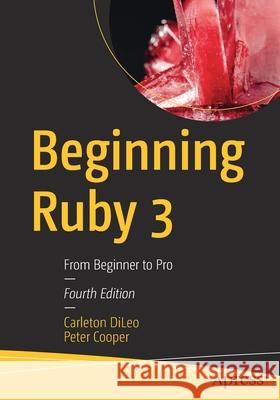Beginning Ruby 3: From Beginner to Pro » książka
topmenu
Beginning Ruby 3: From Beginner to Pro
ISBN-13: 9781484263235 / Angielski / Miękka / 2020 / 585 str.
Kategorie:
Kategorie BISAC:
Wydawca:
Apress
Język:
Angielski
ISBN-13:
9781484263235
Rok wydania:
2020
Ilość stron:
585
Waga:
1.04 kg
Wymiary:
25.4 x 17.78 x 3.15
Oprawa:
Miękka
Wolumenów:
01
Dodatkowe informacje:
Wydanie ilustrowane











